Last weekend, with Steve visiting his folks in North Carolina, Ian and I were on our own. Ian’s brand of autism means that he doesn’t have friends, but he’s otherwise low maintenance. He’s very portable, a perfect +1. So, every weekend, Steve and I take Ian to museums and restaurants. We hike up mountains and take day trips. Pretty much any place that we want to go, he goes with us. Since we hate for him to be bored, we probably do more on our weekends than most people.
Having watched too many Italian grannies on TikTok, I had a craving for fresh pasta. So, we roped in my older son, Jonah, and drove into Manhattan to get the good stuff downtown. But first, we parked the car in a neighborhood just over the George Washington Bridge, called Washington Heights. I lived there for 14 years during the party girl years, the marriage years, and the young mom years.
I showed the boys around the apartment building where they spent their baby years. Ian took pictures for his photography class. And we talked about the old days, when we had little money, but lots of energy to play with our boys in the playgrounds of New York. That apartment, and the stories that we tell the boys about our recovery from graduate school and our little community in New York City, is our origin story. Stories that we tell the boys over dinner on a Sunday night.
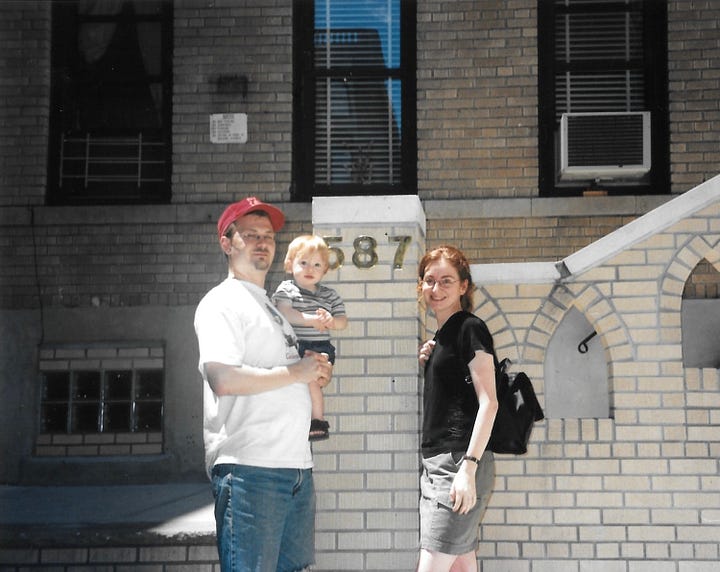
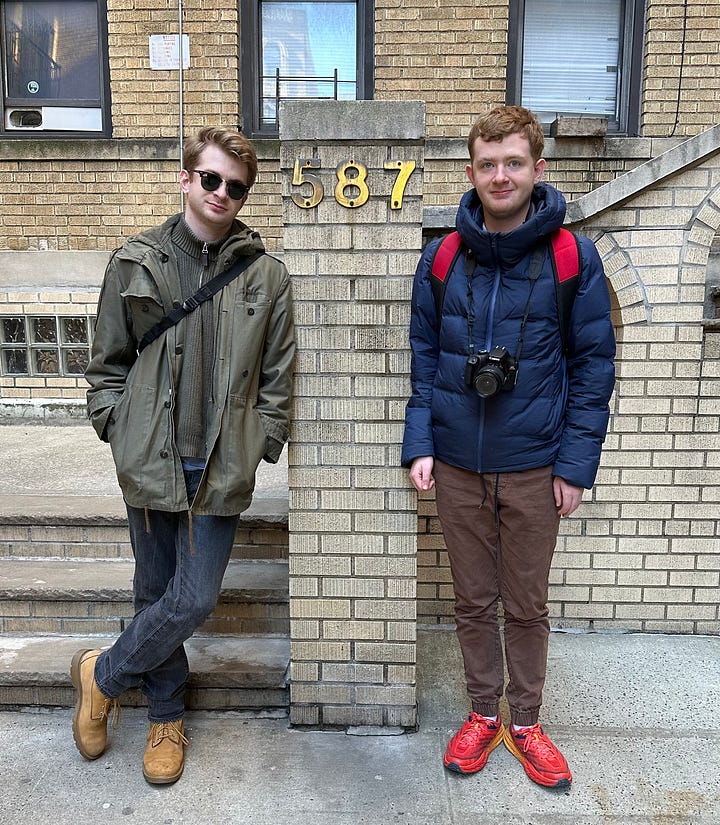
Being middle aged — okay let’s just call it late middle age — pretty much sucks. Menopause, sags, wrinkles, jeans that won’t button. There are spots on the face that need to be burned off. And hair needs stinky dye. Indignities, I tell you. Indignities.
But one of the gifts of being this old is that you have a good story with a beginning, middle, and end. Of course, it’s not THE end, but we’ve lived long enough to have resolution to many problems. In our case, our problem was that we spent ten years getting PhDs, only to discover that there were no jobs. Oh, and we had a baby. And we lived in a four-floor walk up. And then baby number two started doing weird shit.

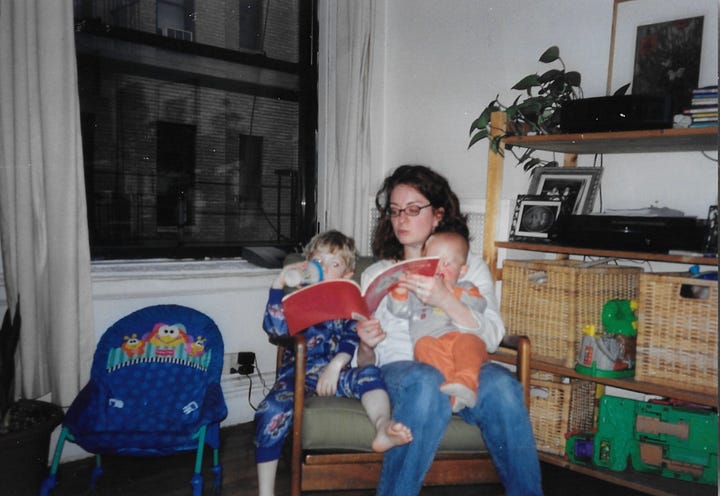
The middle part of the story. We worked our asses off. Steve switched jobs. I took part time jobs and other side gigs, so he could put all his effort into the job that paid most money. We moved and moved again. And kept saving money and working to support the family.
The end part of the story is that we have a nice house, a funny cat, and two adult children, who are flawed but lovely. It’s a good life.
Our story isn’t done yet. Steve still has another decade of work. I want to get a tear drop camper and travel the country. I am building my own businesses. The boys are not fully launched yet, though they are on their way. Some stories are done; some are not done.


Stories are the heart of a family. My dad wrote an article for the Atlantic (yes, it’s a family thing) about the stories that his grandfather told him when he was growing up in Chicago. Sometimes we add a little salt and pepper to these stories to make the truth a little more interesting, but the core truths are always there. These tales create a family identity, a mythology of survival and strength, and a good laugh.
I wonder if some families don’t have stories. A story has to involve jumping over some obstacles, overcoming the demons, grabbing the Golden Fleece. What if everything comes easily with no struggle? You go to Harvard, because your folks went to Harvard. They give you money for a condo on Park Avenue. And then you just continue to make a lot of money with very little effort. Do people like that have stories, too? I’m not sure. Maybe we are the lucky ones, because we have stories in our bank account.
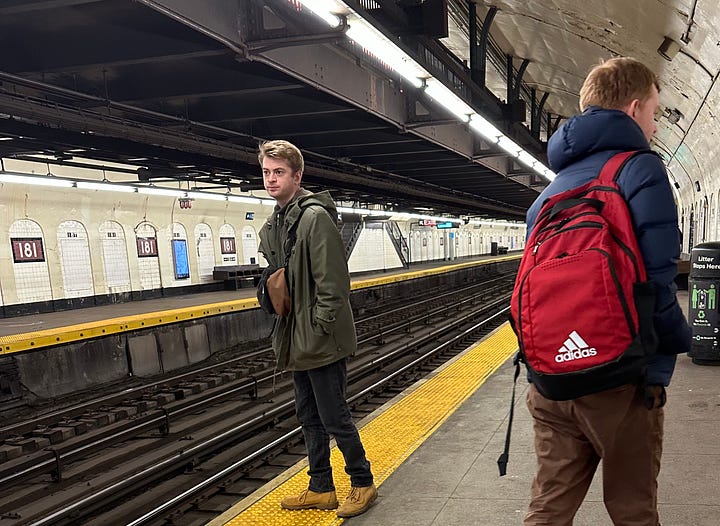
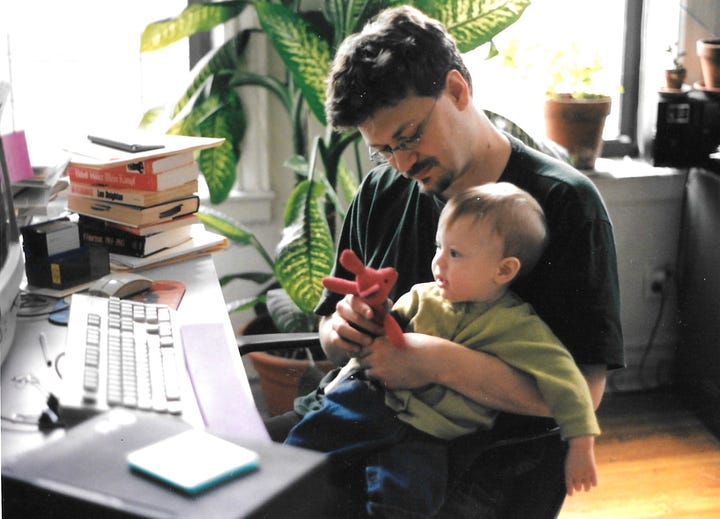
The beginning part of my story absolutely did not involve an apartment on Park Avenue. The original Apt. 11D was a four-floor walk up, with an illegal washing machine, cockroaches, and black mold in the bathroom. Sometimes we didn’t have heat or hot water. When were finishing our dissertations, we had a baby and no income, so we qualified for WIC. I had one pair of shoes. Ordering out for Chinese food was a luxury. We were absolutely under the poverty line.
But we were “grad school poor,” so Steve was able to dig us out of our situation by first taking a temp job as an administrator answering phones at an investment bank, then getting his first job making $40,000, and gradually working his way up the ladder. We had enough social capital to get out of poverty in a few years by making some strategic career changes.
Even though we were poor, we weren’t miserable. Well, writing a dissertation is miserable business, but everything else was okay. We met great friends on the playgrounds of New York City; friends that I still have today. We loved our kids massively and had a ton of fun with them in the parks and streets of the city. We surrounded ourselves with artists and professors — others with similar budgets — so we didn’t notice our poverty so much.
It’s nice to have security right now. I would have a hard time leaving my comfortable home with its driveway, appliances, and reliable heating. But we had that experience, and it was okay. And we can talk about it now with the boys.
Last weekend, I showed them the stairs. Yes, I carried them both up the stairs at the same time. We took pictures in the lobby and outside. We left when Ian was two, so he doesn’t remember any of it. Jonah was five and has hazy memories of the office with all the plants and his nursery school. That place will always be home to us.
LINKS
Scanning all those pictures took a little longer than I thought, so no links today. I’ll probably do another newsletter in a couple days about politics.

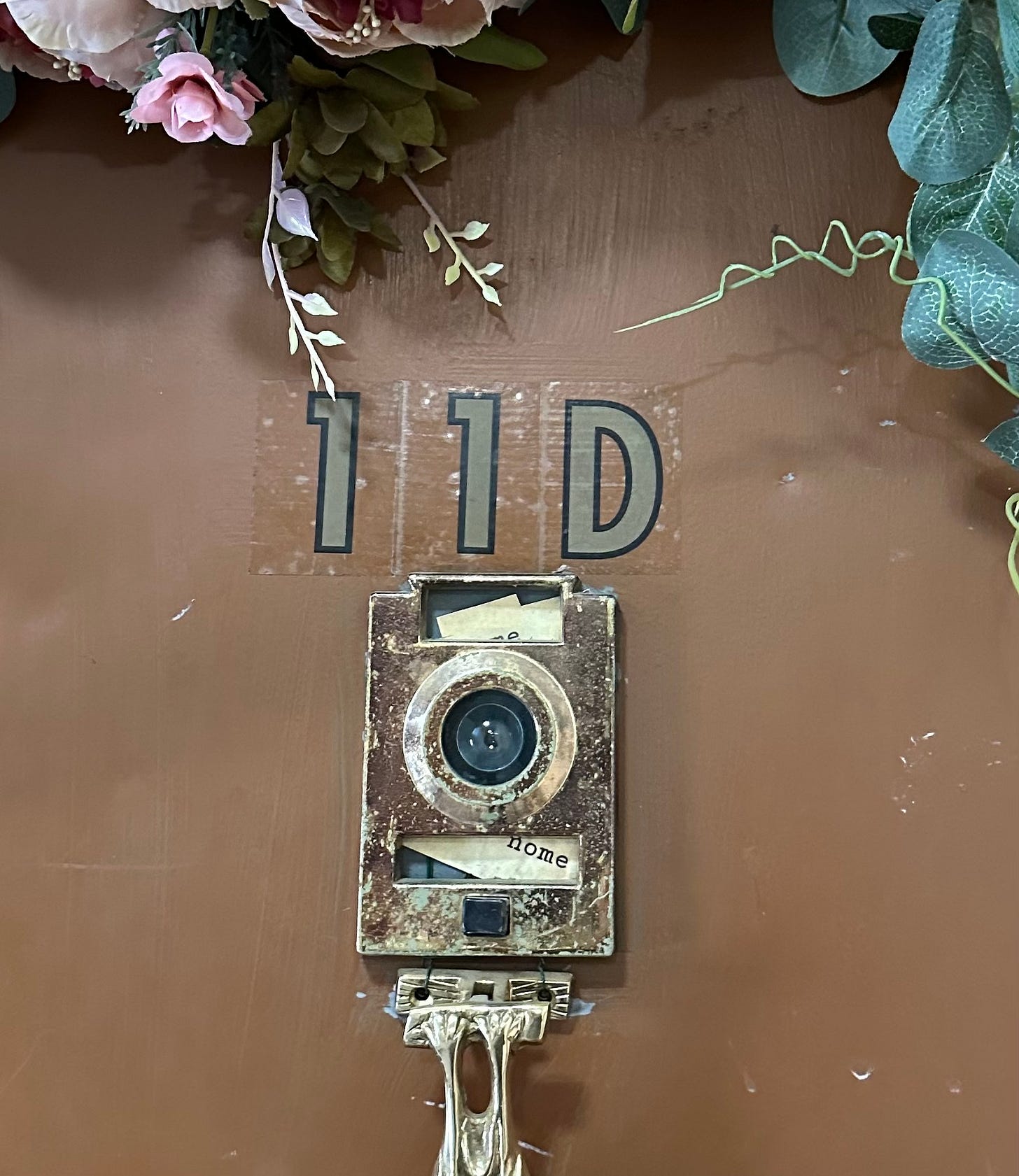
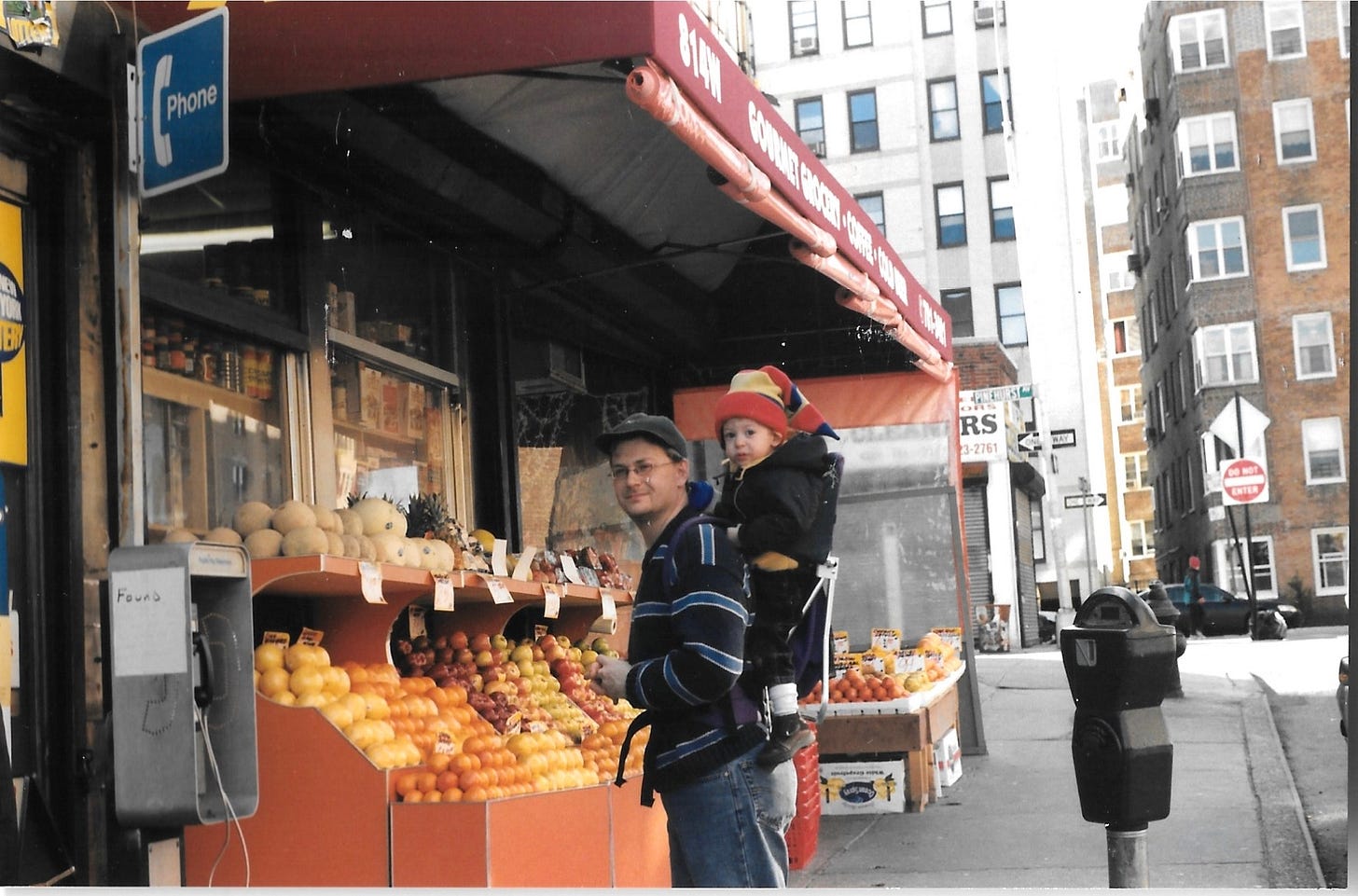

I love your father’s story.
I so love your writing and stories, Laura. Reflections are the gifts that keep on giving, I think. Thanks for sharing.